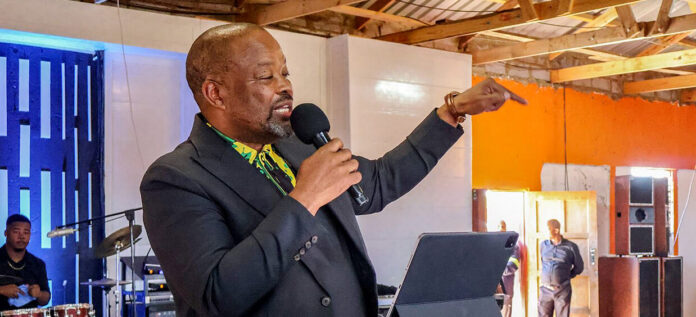This Wednesday, the Supreme Court of Appeal in Bloemfontein is set to delve into a complex legal battle to determine the future of the ANC leadership in the North West amid long-standing internal wrangles over the legitimacy of the provincial executive committee (PEC) elected in August 2022, chaired by human settlements MEC Nono Maloyi.
In their appeal, the appellants are requesting the Supreme Court to overturn the Mafikeng High Court’s decision that declared the August 2022 Provincial Conference and its outcomes lawful. Furthermore, they seek an order declaring the current PEC unlawful and for Luthuli House to appoint a legitimate interim structure until a new PEC is elected.
“It is imperative for the integrity of the ANC and the democratic process that these issues are resolved,” they submit in their heads of argument.
The case arises from a contentious decision made by the ANC’s national executive committee (NEC) in 2018 to disband the PEC and replace it with a provincial task team (PTT).
The appellants, Lebogang Medupe, Sello Molefe, and Itumeleng Moswane, who are local ANC members, are challenging the legitimacy of the NEC’s actions and subsequent decisions.
“The NEC’s decision to disband the PEC was not only abrupt but also arbitrary,” the appellants argue. They assert that the disbandment, made on August 31, 2018, and the
subsequent appointment of a PTT violated the ANC’s constitution and set off a chain of events that left the province without a stable leadership.
These four members first took the matter to Mafikeng High Court on February 5, 2019. The high court ruled in favour of the appellants, declaring the NEC’s actions unlawful. The ANC appealed the judgement and was granted leave to appeal. However, instead of going to the appeal hearing, the ANC opted to appoint the interim provincial committee (IPC).
The appellants said the enforcement of the judgement, which was in their favour, was stalled by the ANC’s appeal.
“The ANC’s continuous appeals have left the North West without a properly constituted PEC for far too long.”
Compounding the issue, the term of the IPC, initially established to fill the leadership void, expired on April 29, 2020. Despite this, the NEC extended the IPC’s mandate multiple times, a move the appellants view as unconstitutional. “There is no provision in the ANC constitution that justifies these repeated extensions,” they argue.
A pivotal moment came when the IPC, whose mandate had lapsed, purportedly took significant decisions, including calling for the ANC’s 9th provincial conference in August 2022.
The appellants took the matter to the North West High Court.
The court intervened on the day of the election, restricting the IPC’s voting powers.
In response, the NEC assumed control of the electoral process, rescheduling the elections and successfully establishing a new PEC. This action, the appellants argue, further complicates the legal landscape. “The actions taken by an expired IPC cannot have any legitimate standing,” they contend, seeking to void decisions made during this period.
Central to the appeal is the appellants’ claim that the Mafikeng High Court erred by accepting the NEC’s narrative that the election of the new PEC was delayed due to the Covid-19 pandemic. “While the pandemic posed challenges, it does not excuse the ANC from adhering to its constitutional mandates.”
However, the ANC argued in court papers that the judgment highlighted that despite the delay, the NEC’s actions were within the ANC’s constitutional framework. Rule 17 of the ANC constitution emphasises the precedence of the NEC’s guidance over provincial bodies.
The court found that maintaining leadership in the province was essential, and the NEC’s involvement was necessary to fill a leadership vacuum.
The ANC said the appellants’ argument that the IPC overstepped its authority was rightfully dismissed, with the court underscoring that the rule does not automatically terminate an IPC’s mandate due to timing issues. Instead, the court highlighted common law principles applicable to voluntary associations, which support the continuation of office bearers until formally removed.



